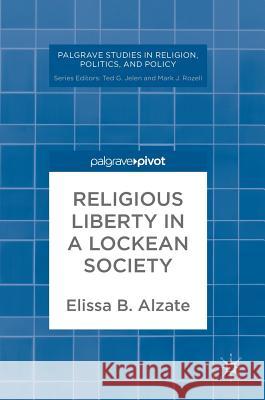Religious Liberty in a Lockean Society » książka
Religious Liberty in a Lockean Society
ISBN-13: 9781137584779 / Angielski / Twarda / 2017 / 104 str.
This book assesses the concept of religious liberty in the United States according to the political theory of John Locke. Protecting the individual freedom of religion without infringing on the rights of others or on legitimate political authority requires delicate balance. The work analyzes Locke's concept of religious liberty and, from it, derives nine criteria for locating that balance. The most important of these criteria requires government neutrality and equality before the law. The United States has historically struggled with providing this balance, particularly through Supreme Court decisions, resulting in the passage of the Religious Freedom Restoration Act (RFRA). Application of Locke's criteria for balancing religious liberty and government authority to three recent cases--a government employee, an employer, and a small business owner--reveal that RFRA legislation threatens this balance by undermining neutral government action and treats citizens unequally before the law.











